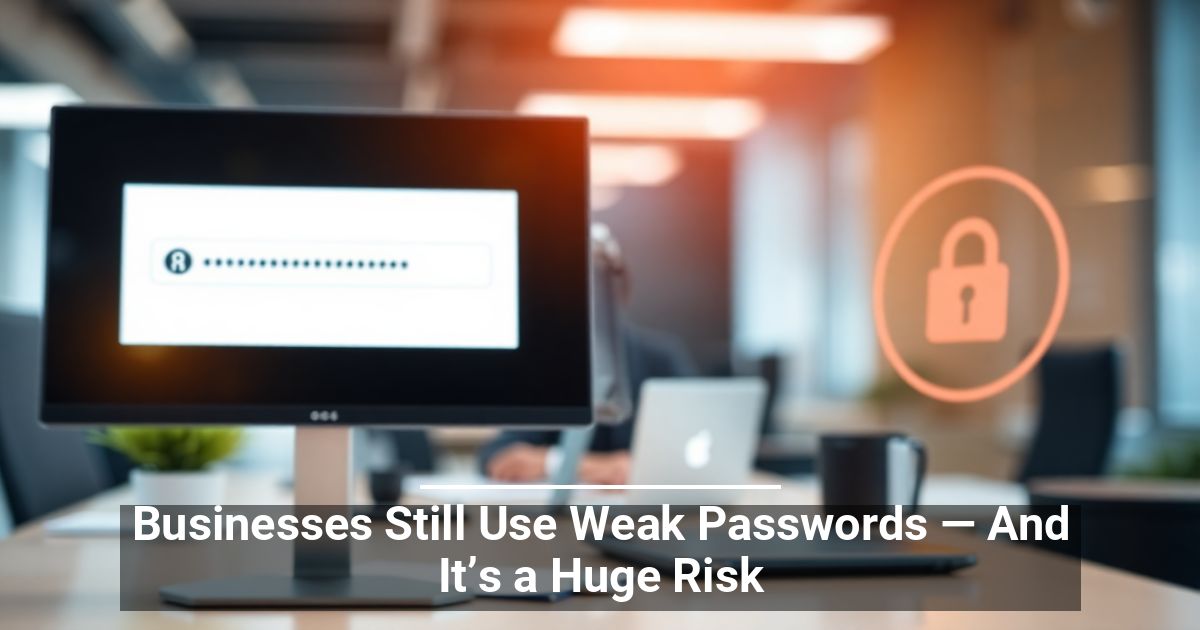 Can you imagine spending years building your business, only to have it compromised in seconds because you decided to use “password” as your login code? You might be thinking, “Who would do that?”
Can you imagine spending years building your business, only to have it compromised in seconds because you decided to use “password” as your login code? You might be thinking, “Who would do that?”
According to research from password manager NordPass, more people than you might expect are using weak passwords, putting their businesses and livelihoods at risk. So why are people still using easily guessable passwords at work?
The Ugly Truth About Passwords
If you use a password like “qwerty” or “123456,” a hacker could crack it before you finish reading this sentence.
Weak passwords make a hacker’s job easy. Criminals don’t have to do much to get into your company’s network or accounts. Once they do, they can steal sensitive data and financial information or even take control of entire business systems.
The effects of such a break are costly to any business. Still, a single breach can tank the entire company for small and medium-sized enterprises. According to Verizon, as many as 60% of small businesses never recover from financial losses, reputational damage, and legal trouble caused by a breach.
It’s not just weak or easily guessable passwords that cause problems, either. Using a default or identical password for numerous accounts is also a problem. It leads to credential stuffing, in which hackers use the usernames and passwords stolen from one service to attempt to log in to others.
Forbes Advisor reports that 78% of people use the same credentials for an average of four services. Most cite convenience as the reason for reuse; they don’t want to create and remember complex logins for dozens of accounts.
Another issue is that many people don’t know how to create a solid password. The best passwords are complex, with at least 12 characters and a mix of symbols, numbers, and letters.
These ideal passwords can be hard to remember, though. To make things easier, people use common dictionary words instead. But this only puts them at risk for dictionary attacks, in which hackers systematically enter every word on a list to figure out the password.
How To Solve the Password Problem (Without Losing Your Mind)
Protecting your business with strong passwords doesn’t have to be complicated. Starting with a strict password policy, you can implement simple protocols and tools to avoid a password-related breach.
Other ways to keep passwords secure include:
- Enabling multi-factor authentication (MFA) so that even if a hacker gets your password, they must complete a second verification step to gain access.
- Changing default passwords on business tools and software immediately.
Passwords Should Be Secure — Keep Them That Way
Weak passwords could be all hackers need to walk through your business's front door and cause catastrophic damage. Take action today to strengthen your passwords and keep your business safe.


